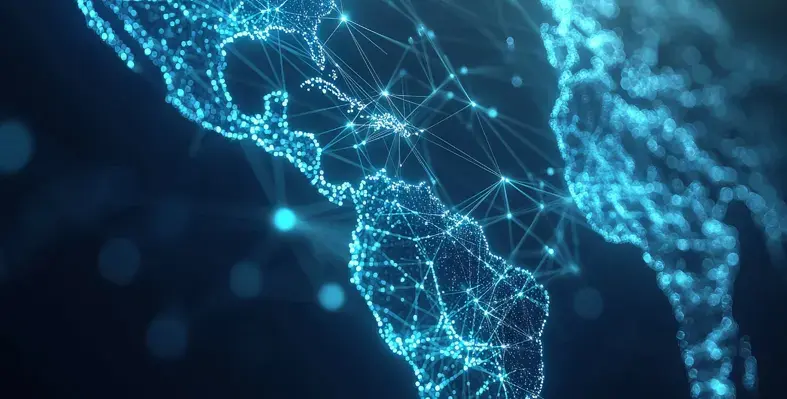
In Nigeria, the main targets included telecommunications resellers and computing infrastructure providers. (Image source: NETSCOUT)
West Africa’s DDoS threat landscape was dominated by Nigeria and Mali, according to NETSCOUT’s Threat Intelligence Report for July to December 2024, which analyses global attack trends and techniques
Nigeria faced 1,716 attacks in the latter half of 2024, a notable decline from 2,721 incidents in the first six months. Meanwhile, Mali saw a dramatic surge, with attacks soaring from 115 in the first half to 1,637 in the second half of the year.
“Web search portals and all other information services bore the brunt of attacks in Mali, with an astounding average duration of 1,197 minutes per incident,” said Bryan Hamman, NETSCOUT’s regional director for Africa. “This was followed by wired telecommunications carriers, which was also the most targeted industry at a global level during the same period, with more than 2.1 million incidents.”
In Nigeria, the main targets included telecommunications resellers and computing infrastructure providers. Interestingly, beauty salons appeared among the top ten sectors attacked, alongside wired telecommunications carriers, commercial banks, used merchandise retailers, tyre dealers, and household electronics wholesalers. “This shows once again how threat actors adapt their strategies accordingly within different countries to target those industries that are strong in individual sovereign territories,” Hamman explained.
Nigeria also experienced some of the most complex DDoS campaigns in the region, with up to 22 different vendors involved in a single attack, primarily using TCP, DNS amplification, and ICMP flood (Ping flood) methods.
Liberia ranked next with 1,189 attacks, slightly fewer than the 1,515 reported earlier in 2024. The country’s computer systems design services sector was heavily targeted, suffering 360 attacks over six months. DNS amplification was the dominant attack vector, closely followed by STUN amplification.
Ghana recorded a sharp decline in attacks in the second half of 2024, falling to 917 from 4,753 earlier in the year. The ICT sector remained most targeted, including web search portals and information services (317 attacks), wired telecommunications carriers (43), and computing infrastructure providers. Notably, footwear manufacturers were third, enduring 14 attacks during the period.
The Democratic Republic of the Congo entered NETSCOUT’s rankings for the first time, coming in fifth with 879 attacks. Hamman noted, “While the most significant attack peaked at a modest 0.74 Gbps, the complexity was notable – with up to 15 vectors used in a single attack.” Computing infrastructure providers bore the brunt, though one satellite telecommunications attack lasted an exhausting 689 minutes.
Though Cameroon was not the most targeted country with 811 incidents, nor did it experience the most complex attacks, it recorded the highest bandwidth attack in the region at 200.43 Gbps – surpassing Nigeria’s 148.77 Gbps.
Meanwhile, Côte d'Ivoire, Guinea, and the Republic of the Congo faced fewer attacks, with 495, 341, and 329 incidents respectively. Côte d'Ivoire suffered the largest attack among them at 8.66 Gbps, targeting wired telecommunications carriers. Guinea’s wireless telecommunications carriers were most pressured, while telecommunications resellers were the hardest hit in the Republic of the Congo.
“This latest data from NETSCOUT reinforces a critical truth for West Africa: DDoS attacks aren’t just increasing in frequency, but also in intensity and sophistication,” Hamman emphasized. “While nations like Nigeria and Mali face a high volume of incidents, others are experiencing powerful, high-bandwidth attacks that can cripple essential services.
“As noted previously, the ICT sector remains firmly in the crosshairs across the continent in its entirety, making it vital for organisations across the region to prioritise proactive defence strategies, invest in continuous risk assessments and engage in broader cybersecurity collaboration to stay ahead of evolving threats,” he concluded.

























